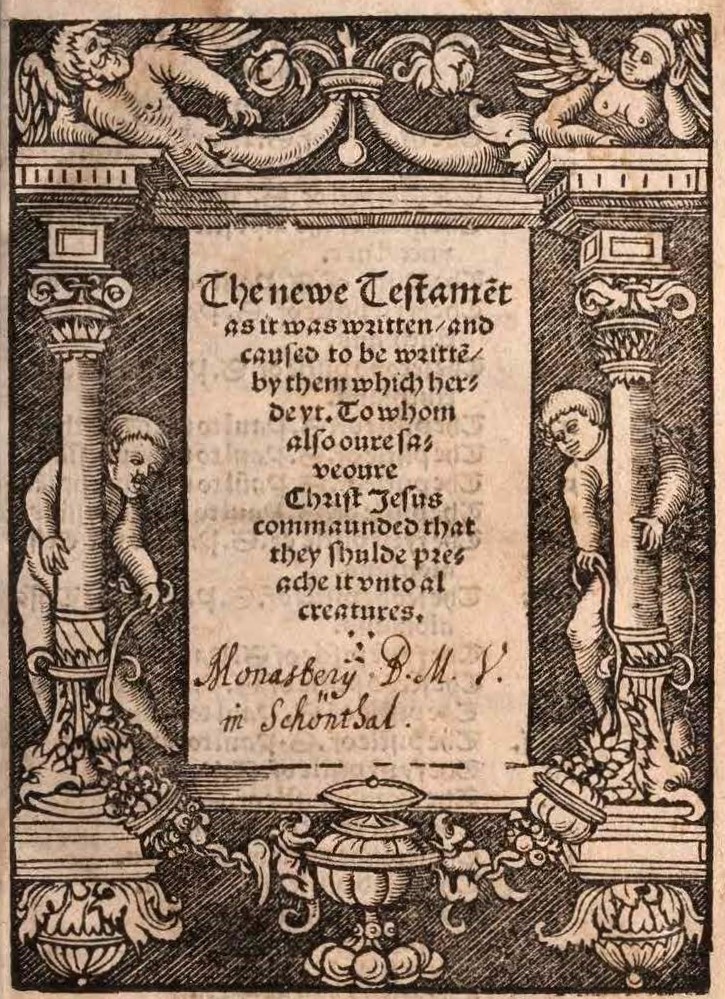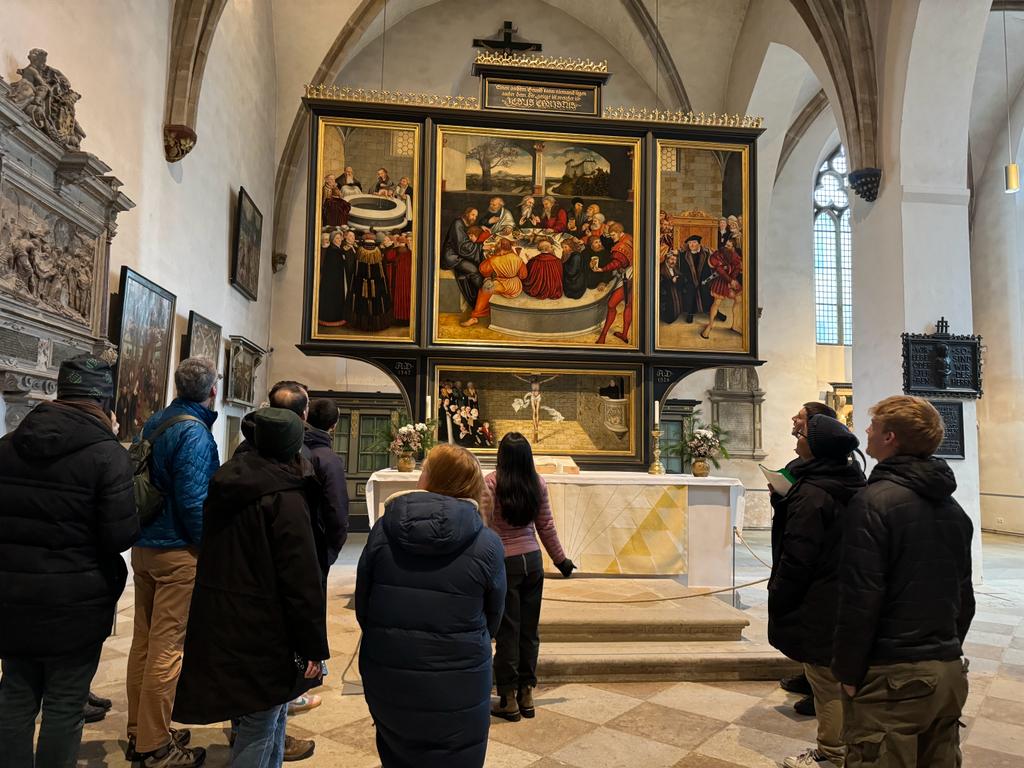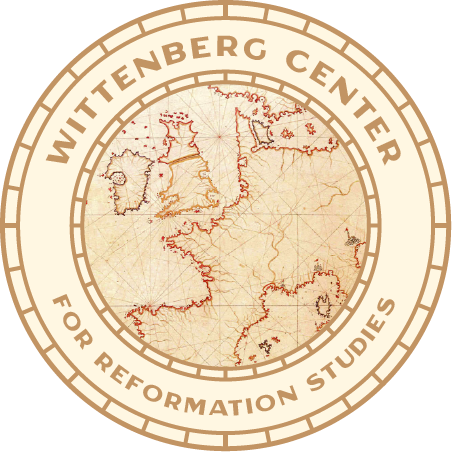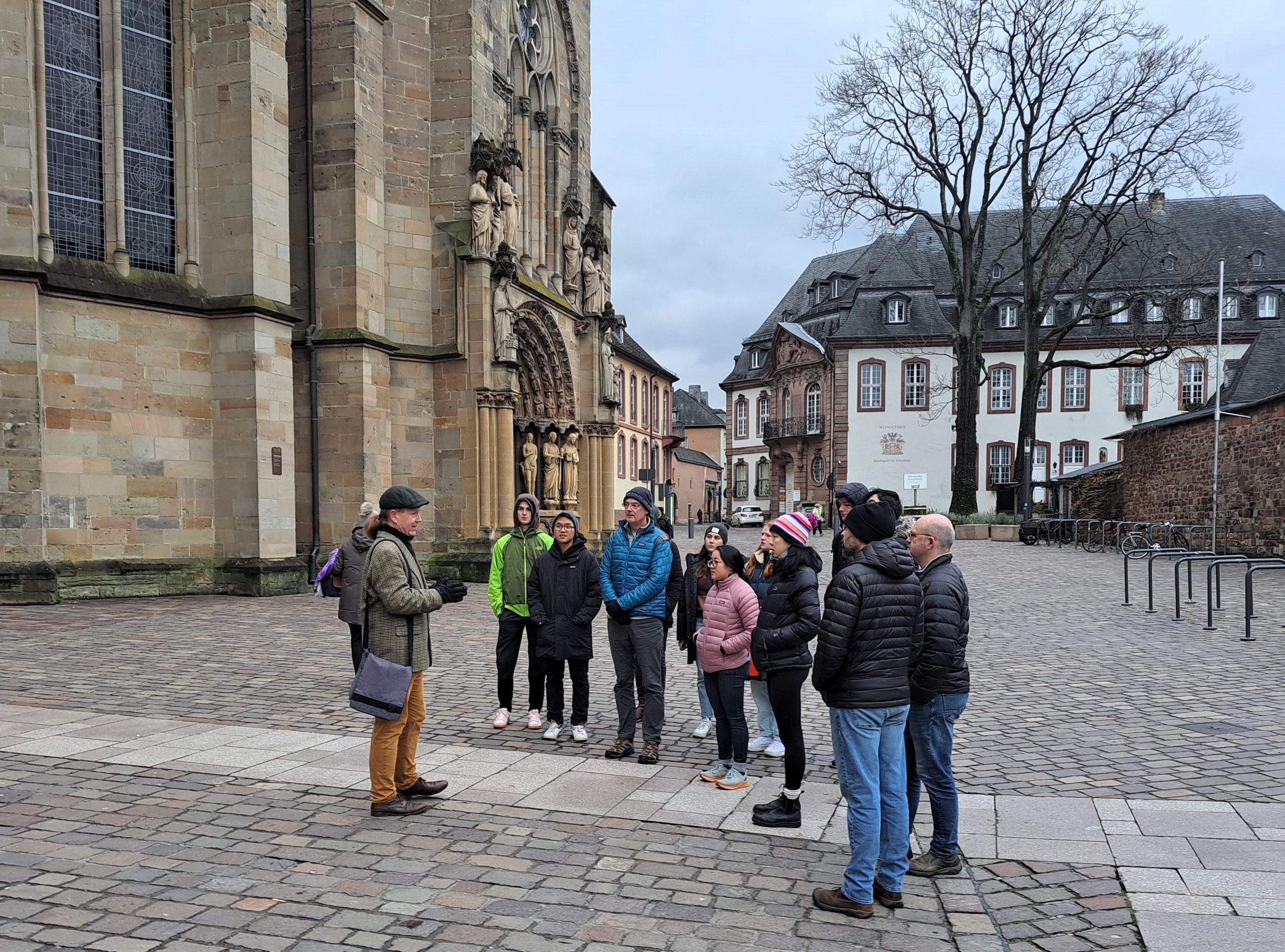For the third time, the Wittenberg Center welcomed a group of students and professors from Dartmouth College who came to Germany for a tour on the traces of church history. From November 27 to December 1, the group visited first Trier and then Wittenberg. In Trier, the group was introduced to the beginnings of Christianity in Germany. The Roman monuments and excavations showed how the city flourished and the Christian community grew in the 4th and 5th centuries. One afternoon was devoted to the study of a patristic text: St. Augustine’s “Confessions,” in which the city of Trier plays a small but not insignificant role and which testifies to the rediscovery of Paul’s doctrine of justification.
Augustine was important for the renewal of the church in the Reformation of the 16th century. This renewal came into focus during the group’s stay in Wittenberg. At the Old University (Leucorea), several lectures introduced the students to the history of the Reformation and the city. An instructive example of the effectiveness of the Reformation message is William Tyndale’s translation of the New Testament. The group read and analyzed together Tyndale’s preface to Paul’s Epistle to the Romans, first published in 1526 and largely a translation of Luther’s 1522 preface. Guided tours took the group to the sights and monuments of the Reformation in Wittenberg.
Trier and Wittenberg show the impact of the Christian faith on Germany and point to the heart of the biblical message: justifying faith.




